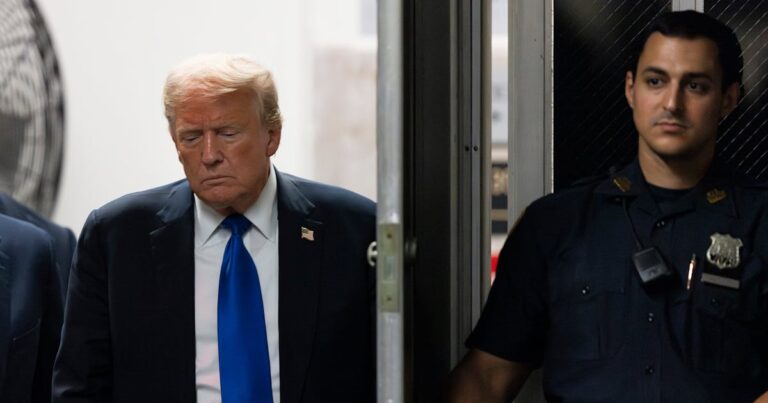It’s not yet clear whether Donald Trump’s conviction in New York on 34 campaign finance violations will change the minds of Minnesotans, with political observers saying most formed their opinions of the former president years ago.
Until a new poll assesses how Minnesota voters feel about Thursday’s New York conviction of 34 campaign finance violations, it will be difficult to tell whether those felonies improve or reduce his chances of winning here and whether they will help or hurt him as Republicans seek to retake the state Legislature this fall.
“We’re in truly uncharted territory right now,” said Amy Koch, a former Republican state Senate majority leader. “I keep saying that, but the ship is just getting further and further away from shore.”
Koch said he was waiting for opinion polls to determine how the news would affect voters.
“A conviction like this has the potential to change public opinion, and we’re all wondering that,” said Steven Shea, professor emeritus of political science at Carlton College.
Koch wonders how much a guilty verdict will change public opinion. “It may already be decided,” he says. “He’s been on trial for weeks now, but that doesn’t seem to have affected the polls.”
But Scheier said he sees the verdict as a new test for the Minnesota Republican Party, which he said faces headwinds due to Trump’s conviction and the Republican endorsement of controversial Senate candidate Lois White.
“Would you like to be the chair of the state Democratic Party or the chair of the state Republican Party to address this situation?” Scheier asked.
Republicans are negative
Many Minnesota Republicans have rejected the conviction, calling the trial political. Republican Reps. Tom Emmer, Pete Stauber and Michelle Fischbach said in a statement that they believed the trial was “political” and “rigged.”
Republican Rep. Isaac Schultz of Elmdale Township posted on X minutes after the guilty verdict that he had donated to Trump’s campaign. In an interview, he also said he believed the trial was political. Schultz and Minnesota Republican Party Chairman David Hahn said they viewed Trump’s conviction as separate from the charges against Democratic Sen. Nicole Mitchell of Woodbury because they believe Trump was charged for political reasons, not evidence.
Schultz said he thinks Republicans should not focus on criminal convictions in the fall election, but rather contrast Trump with Biden on immigration and link Biden to inflation.
“The Republicans are the ones with the energy,” Schultz said. “When Trump runs, Republicans are going to gain seats in the Minnesota Legislature.”
Jeff Hayden, a lobbyist and former Democratic state legislator, said the conviction will erode support from voters not loyal to Trump, but that the nuances of local issues in lower-district districts remain difficult to predict.
Polarised lenses
Hann said there was a clear partisan divide in how Minnesota viewed criminal convictions.
“On the one hand, people are treating him as if he’s already been convicted,” Han said. “On the other hand, some people are saying this is politically motivated.”
Republican state Rep. Pat Garafolo of Farmington said he sees the reaction to Trump’s conviction as another sign of political polarization. Garafolo, who is not seeking reelection, said he believes the polarization makes it harder for people to hold members of their own party accountable.
“Half the nation will see President Trump as a victim and the other half as a felon,” Garafolo said, adding that different television stations reinforced that divide: “I was watching CNN and Fox News at the same time and it was like they were reporting completely different events.”
While Trump, Hahn and other Republicans have said the election results will be a real verdict on the former president, Garafolo said he worries the loser of the election will not accept the results.
Garafolo said he’s hopeful Minnesota will have a divided government next year and that there will be more bipartisan cooperation to ease the divide, but he also said he’s worried.
“My bigger concern is that political polarization is dividing the country,” he said.

